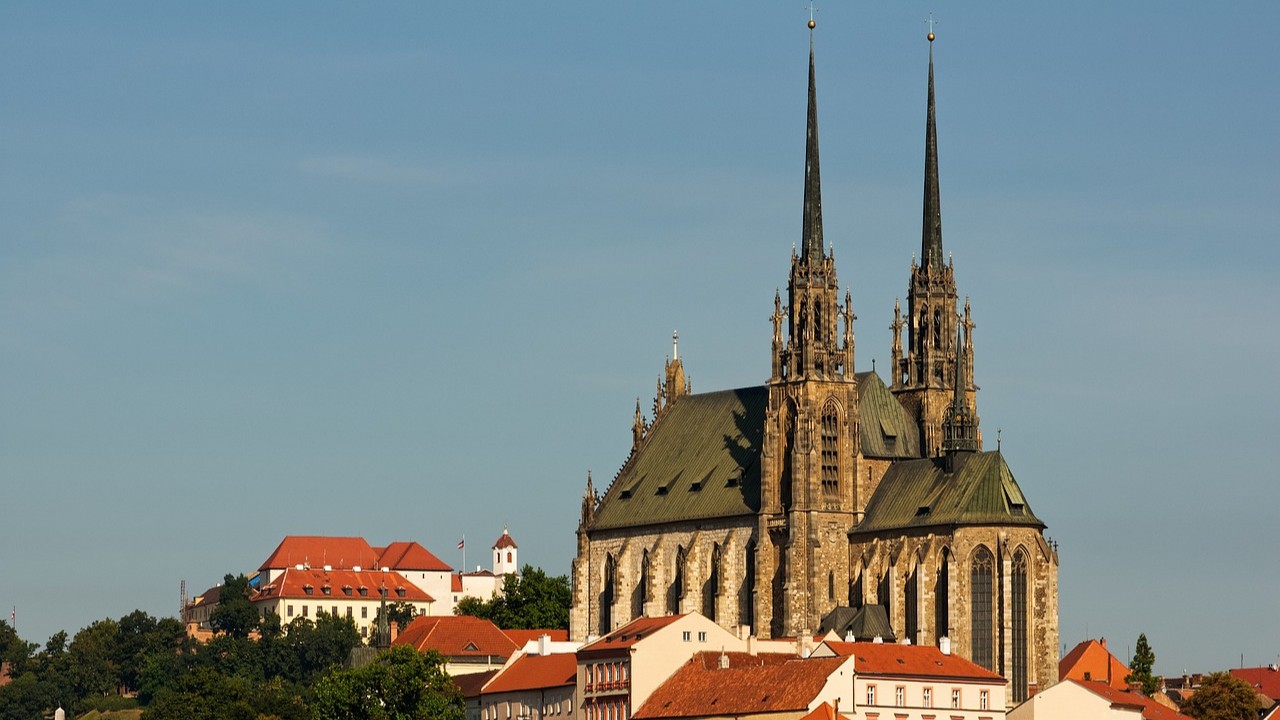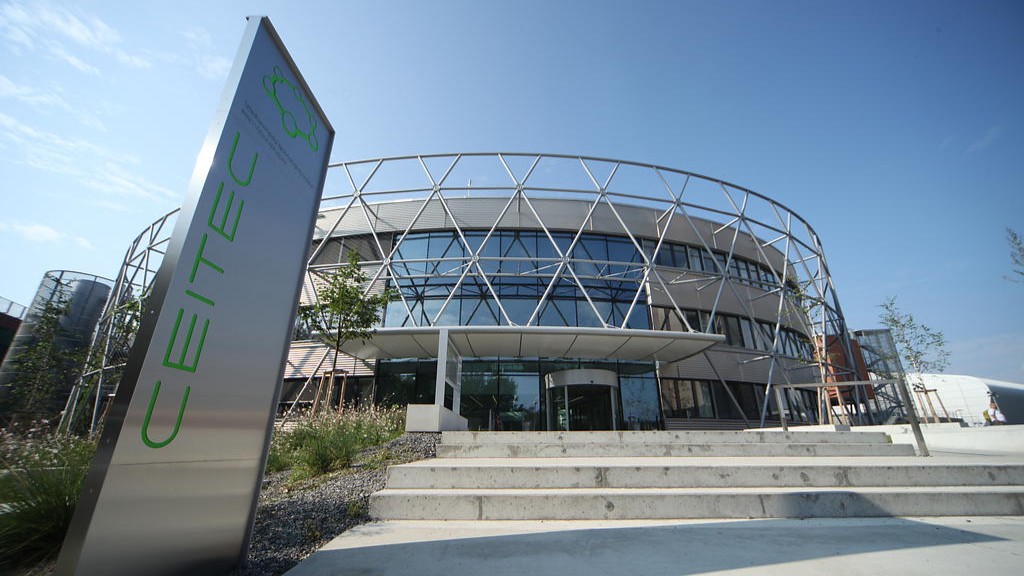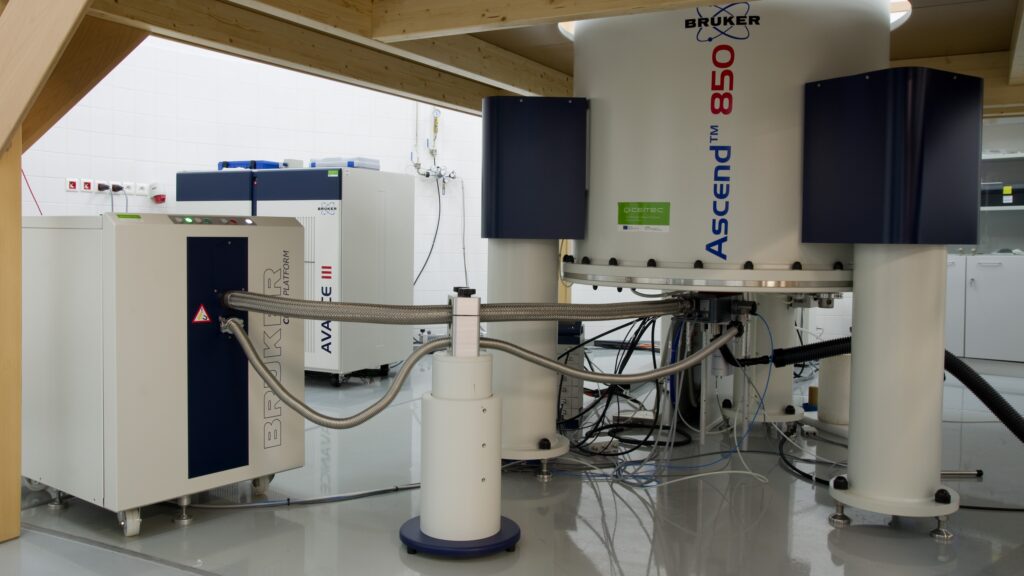Non-globular proteins in the era of Machine Learning
COST Action CA21160
ML4NGP TRAINING SCHOOL
THIS EVENT HAS PASSED.
3rd ML4NGP Training School "NMR for Intrinsically Disordered Proteins"
February 3-7, 2025
Brno, Czech Republic



DESCRIPTION
The COST Action ML4NGP is pleased to announce the 3rd Training School on NMR for Intrinsically Disordered Proteins.
Nuclear Magnetic Resonance (NMR) is a versatile technique that is also used to study biomolecules at atomic resolution, including intrinsically disordered proteins (IDPs). A variety of NMR techniques have been developed to obtain information about intermolecular contacts, conformational preferences, dynamics and interactions of proteins.
The aim of this Training School is to explore the origin of NMR data, the procedure of their analysis and interpretation, including potential sources of bias and error. Throughout almost one week, the participants will learn the principles and practicalities of NMR to better understand how data reflects IDP behavior in near-native states. Discussions on NMR and other experimental techniques will provide unique insights on the limitations of NMR for IDP research, creating opportunities for advancing the field.
The Training School is targeted for bioinformatics and life sciences researchers with minimal prior experience in NMR, emphasizing the fundamental understanding rather than conducting measurements. The program combines theoretical sessions and interactive discussions with hands-on practical sessions to ensure participants leave with a robust understanding of how NMR data is used, the possible biases in analysis, and how these insights are advancing our knowledge of non-globular proteins.
TARGET AUDIENCE AND REQUIREMENTS
Exclusive for the working group members of the COST Action CA21160. To ensure a balanced and diverse representation, participants will be selected by the organizing committee with attention to gender balance, early career stage (PhD students and junior postdocs), and geographic diversity. The number of spots available are limited to facilitate in-depth discussion and hands-on learning.
This Training School is targeted for PhD students and early career postdocs with (nearly) zero experience of NMR who are interested in learning the basics of this technique to advance the study of non-globular proteins, with special focus on IDPs. Participants are expected to have prior knowledge and basic training in Bioinformatics and Computational Biology, or related sciences. Knowledge on NMR is not a requirement.
Application Deadline: 6 December 2024
Notification of acceptance: 10 December 2024
Please note that your application does not confirm that you have been selected for the course.
You will be informed before the registration deadline.
- A short motivation statement (max. 500 characters) and CV will be requested in the application form
- COST Action ML4NGP will reimburse travel expenses for a maximum of 30 participants
- A certificate of attendance will be sent no later then one week after the end of the school
Confirmed trainers
Pavel Kadeřávek (CEITEC-MU, Czech Republic)
Lukas Zidek (CEITEC-MU, Czech Republic)
Michele Vendruscolo (University of Cambridge, UK)
Jiří Mareš (University of Vienna, Austria)
Frans Mulder (Johannes Kepler University Linz, Austria)
Gyula Batta (University of Debrecen, Hungary)
Dennis Kurzbach (University of Vienna, Austria)
Marco Schiavina (University of Florence, Italy)
Fabien Ferrage (CNRS, France)
Martin Blackledge (Institut de Biologie Structurale, France)
Isabelle Landrieu (Lille University, France)
Enrico Luchinat (University of Florence, Italy)
Hugo van Ingen (Utrecht University, the Netherlands)
preliminary PROGRAM
MONDAY | FEBRUARY 3, 2025
08:30-09:00
Registration
09:00-09:05
Welcome and introduction
09:05-09:45
Theory: NMR introduction | Lukáš Žídek
09:45-10:45
Theory: Chemical Shifts | Michele Vendruscolo
10:45-11:15
Coffee Break
11:15-12:50
Practice: NMR software | Pavel Kadeřávek
12:50-14:00
Lunch
14:00-15:00
Theory: Diffusion-Ordered NMR Spectroscopy | Gyula Batta
15:00-15:30
Coffee break
15:30-16:30
Practice: Chemical Shifts | Michele Vendruscolo
16:30-17:30
Practice: Diffusion-Ordered NMR Spectroscopy | Gyula Batta
17:30-18:00
Visit to NMR laboratory
18:00
Dinner
TUESDAY | FEBRUARY 4, 2025
08:30-10:00
Theory: J couplings | Frans Mulder
10:00-10:30
Coffee Break
10:30-12:30
Practice: J couplings | Frans Mulder
12:30-13:40
Lunch
13:40-15:30
Theory: NMR relaxation | Fabien Ferrage
15:30-16:00
Coffee break
16:00-18:00
Practice: NMR relaxation | Fabien Ferrage
18:00
Dinner
WEDNESDAY | FEBRUARY 5, 2025
08:30-09:30
Theory: Nuclear Overhauser Effect| Jiří Mareš
9:30-10:00
Coffee Break
10:00-12:00
Practice: Nuclear Overhauser Effect| Jiří Mareš
12:00-13:10
Lunch
13:10-14:40
Theory: PRE, PRI, EPR, DNP | Dennis Kurzbach
14:40-15:10
Coffee break
15:10-17:10
Practice: PRE, PRI, EPR, DNP | Dennis Kurzbach
18:00
Social Dinner
THURSDAY | FEBRUARY 6, 2025
08:30-10:10
Theory: Interaction studies | Hugo van Ingen
10:10-10:40
Coffee Break
10:40-12:40
Practice: Interaction studies | Hugo van Ingen
12:40-13:50
Lunch
13:50-15:30
Theory: DC and cross-relaxations | Marco Schiavina
15:30-16:00
Coffee break
16:00-18:00
Practice: DC and cross-relaxations | Marco Schiavina
18:00
Dinner
FRIDAY | FEBRUARY 7, 2025
08:30-09:45
Theory: Post-translational modifications | Isabelle Landrieu
9:45-10:45
Theory: In-cell NMR | Enrico Luchinat
10:45-11:15
Coffee Break
11:15-12:15
Practice: Post-translational modifications | Isabelle Landrieu
12:15-13:00
Practice: In-cell NMR | Enrico Luchinat
13:00-14:10
Lunch
14:10-17:50
Theory: IDPs ensembles | Martin Blackledge
18:00
Dinner
VENUE
The Training School will be organised at the CEITEC Masaryk University.
Kamenice 753/5
625 00 Brno, Czech Republic
ORGANIZATION
LOCAL ORGANIZING COMMITTEE
Pavel Kadeřávek, Šárka Fajtlová, Dávid Tužinčin, Viktor Bartošík, Alice Laníková, Martin Černý, Viliam Volko (CEITEC Masaryk University, Czech Republic)
SCIENTIFIC organizing COMMITTEE
Core Group ML4NGP
This event is part of the activities of the COST Action ML4NGP, CA21160, which is supported by COST (European Cooperation in Science and Technology). The e-INFRA CZ project (ID:90254), supported by the Ministry of Education, Youth and Sports of the Czech Republic, provided part of the computational resources used during practical sessions.
